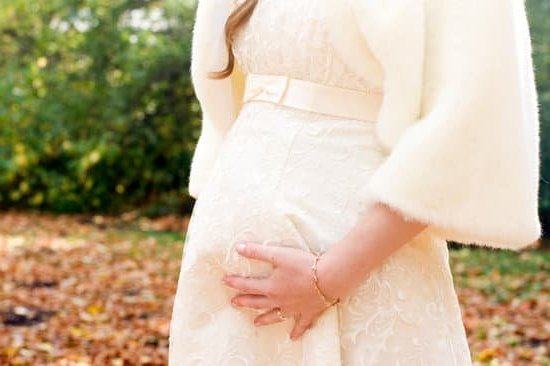Breast Changes In Pregnancy Week By Week Pictures
Most pregnant women will experience some breast changes during their nine months. Your breasts will go through many changes as they prepare to produce milk for your new baby. Here is a breakdown of the most common changes you can expect to see in your breasts during pregnancy.
The first change you will likely notice is an increase in breast size. This is due to the increase in estrogen and progesterone levels during pregnancy. Your breasts may also feel tender or sore, especially during the first few weeks. As your breasts grow, the veins may become more visible and the skin may become darker.
The areola, the dark area around the nipple, will also enlarge and may become more pronounced. The nipples may become more sensitive and may even leak a little colostrum, the early milk produced by the breasts.
By the third trimester, your breasts will be fully prepared to produce milk. You may find that your breasts leak milk more often and that they are fuller and heavier.
Most of these changes are temporary and will go away after you give birth. However, your breasts may be a little bit different than they were before pregnancy. If you are concerned about any changes in your breasts, be sure to talk to your healthcare provider.
Weekly Pregnancy Symptoms
The following is a list of common symptoms that may occur during pregnancy. This is not an exhaustive list, and you may experience symptoms that are not listed here. Contact your health care provider if you are concerned about any symptoms you are experiencing.
Symptoms during the first trimester:
Nausea and vomiting – Nausea and vomiting are common during the first trimester. Some women experience morning sickness, which can occur at any time of the day. Nausea and vomiting can be caused by hormonal changes, the growing fetus, and digestive system changes.
Fatigue – Fatigue is common during the first trimester. The combination of hormonal changes and the extra work your body is doing to support the growing fetus can cause you to feel tired.
Heartburn – Heartburn is a common complaint during pregnancy. It is caused by the increased production of stomach acid and the shift of the stomach’s position caused by the growing fetus.
Constipation – Constipation is common during pregnancy. It is caused by the hormonal changes that occur during pregnancy and the extra work the digestive system is doing.
Frequent urination – Frequent urination is caused by the increase in the hormones progesterone and estrogen. These hormones cause the kidneys to work harder and make you feel the urge to urinate more often.
Symptoms during the second trimester:
Swollen feet and ankles – Swelling is common during the second trimester. It is caused by the increased production of fluids and the extra work the heart has to do to pump blood through the body.
Backache – Backache is common during the second trimester. It is caused by the extra weight the fetus is putting on your back, as well as the changes in your posture caused by the growing fetus.
Headache – Headache is common during the second trimester. It is often caused by the increase in hormones, dehydration, and the extra work the body is doing.
Heartburn – Heartburn is common during the second trimester. It is caused by the increased production of stomach acid and the shift of the stomach’s position caused by the growing fetus.
Constipation – Constipation is common during pregnancy. It is caused by the hormonal changes that occur during pregnancy and the extra work the digestive system is doing.
Frequent urination – Frequent urination is caused by the increase in the hormones progesterone and estrogen. These hormones cause the kidneys to work harder and make you feel the urge to urinate more often.
Symptoms during the third trimester:
Shortness of breath – Shortness of breath is common during the third trimester. It is caused by the extra weight the fetus is putting on your lungs and the changes in your posture caused by the growing fetus.
Snoring – Snoring is common during the third trimester. It is caused by the extra weight the fetus is putting on your respiratory system and the changes in your posture caused by the growing fetus.
Edema – Edema is common during the third trimester. It is caused by the increased production of fluids and the extra work the heart has to do to pump blood through the body.
Backache – Backache is common during the third trimester. It is caused by the extra weight the fetus is putting on your back, as well as the changes in your posture caused by the growing fetus.
Heartburn – Heartburn is common during the third trimester. It is caused by the increased production of stomach acid and the shift of the stomach’s position caused by the growing fetus.
Constipation – Constipation is common during pregnancy. It is caused by the hormonal changes that occur during pregnancy and the extra work the digestive system is doing.
Frequent urination – Frequent urination is caused by the increase in the hormones progesterone and estrogen. These hormones cause the kidneys to work harder and make you feel the urge to urinate more often.
Pregnancy Symptoms Two Weeks
After Conception
If you are trying to conceive, you may be wondering about early pregnancy symptoms. Many women report feeling different early on in their pregnancies, but what are actually symptoms of pregnancy two weeks after conception
The most common symptoms of early pregnancy are fatigue, nausea, and breast tenderness. These symptoms can vary from woman to woman and can also change from one pregnancy to the next. While it is impossible to know for certain whether you are pregnant until you take a pregnancy test, there are a few signs that may indicate that you are pregnant two weeks after conception.
If you are experiencing a missed period, fatigue, nausea, and breast tenderness, you may want to take a home pregnancy test. These symptoms can also be caused by other factors, such as stress or illness, so it is important to speak with your doctor if you are concerned about your pregnancy.
If you are pregnant, your doctor will likely recommend that you begin taking prenatal vitamins and may also prescribe medication to help alleviate nausea and vomiting. It is important to follow your doctor’s instructions and to contact him or her if you experience any problems or concerns.
Early pregnancy is an exciting time, and with proper care, most pregnancies progress smoothly. By understanding the symptoms of early pregnancy, you can better monitor your own health and be prepared for the changes that lie ahead.
12 Week Pregnancy Belly Pictures
Pregnancy is an amazing time in a woman’s life. It is a time when a woman’s body goes through incredible changes as her baby grows. As a woman progresses through her pregnancy, her belly will grow and change as well. In this blog, we will take a look at the different stages of a woman’s pregnancy as her belly changes.
We will start with the early weeks of pregnancy, when a woman’s belly is just starting to show. In the early weeks of pregnancy, a woman’s belly may start to show a small bump, especially if she is pregnant with her second child or more. This small bump is the baby’s head, and it will continue to grow as the baby grows.
As a woman progresses through her pregnancy, her belly will continue to grow. In the later weeks of pregnancy, her belly will be quite large and will likely be quite noticeable. This large belly is the result of the baby’s body growing and the mother’s uterus expanding.
In the final weeks of pregnancy, a woman’s belly will be quite large and will likely be quite noticeable. This large belly is the result of the baby’s body growing and the mother’s uterus expanding. As the baby gets closer to being born, the belly will start to contract, which is why it will start to look smaller in the final weeks of pregnancy.
So, what can you expect from your pregnancy belly as you progress through your pregnancy Well, in the early weeks you can expect to see a small bump, which is the baby’s head. In the later weeks you can expect to see a large belly, which is the baby’s body. And in the final weeks you can expect to see a contracting belly, which is the baby getting closer to being born.
How Many Months Is 26 Weeks In Pregnancy
A pregnancy is typically 40 weeks long, though it can be as short as 37 weeks or as long as 43 weeks. Pregnancies lasting more than 41 weeks are considered post-term. Weeks 26-40 make up the third trimester of pregnancy.
iframe width=”560″ height=”315″ src=”https://www.youtube.com/embed/cW_V0qsYe4o” title=”YouTube video player” frameborder=”0″ allow=”accelerometer; autoplay; clipboard-write; encrypted-media; gyroscope; picture-in-picture” allowfullscreen>

Welcome to my fertility blog. This is a space where I will be sharing my experiences as I navigate through the world of fertility treatments, as well as provide information and resources about fertility and pregnancy.





